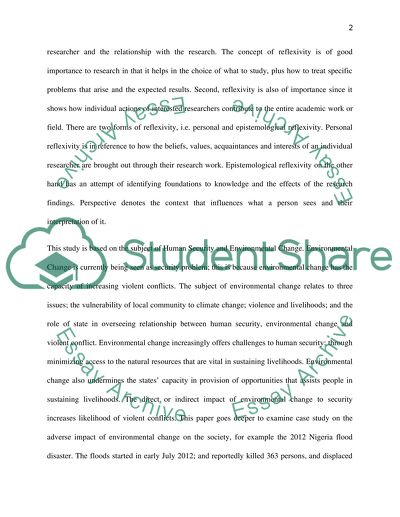Cite this document
(“How might a researchers position shape the processes and outcomes of Essay - 1”, n.d.)
Retrieved from https://studentshare.org/environmental-studies/1647028-how-might-a-researchers-position-shape-the-processes-and-outcomes-of-their-research-use-an-example-from-human-security-and-environmental-change-to-illustrate-your-answer-is-reflexivity-a-sufficient-protection-against-the-risks-o
Retrieved from https://studentshare.org/environmental-studies/1647028-how-might-a-researchers-position-shape-the-processes-and-outcomes-of-their-research-use-an-example-from-human-security-and-environmental-change-to-illustrate-your-answer-is-reflexivity-a-sufficient-protection-against-the-risks-o
(How Might a Researchers Position Shape the Processes and Outcomes of Essay - 1)
https://studentshare.org/environmental-studies/1647028-how-might-a-researchers-position-shape-the-processes-and-outcomes-of-their-research-use-an-example-from-human-security-and-environmental-change-to-illustrate-your-answer-is-reflexivity-a-sufficient-protection-against-the-risks-o.
https://studentshare.org/environmental-studies/1647028-how-might-a-researchers-position-shape-the-processes-and-outcomes-of-their-research-use-an-example-from-human-security-and-environmental-change-to-illustrate-your-answer-is-reflexivity-a-sufficient-protection-against-the-risks-o.
“How Might a Researchers Position Shape the Processes and Outcomes of Essay - 1”, n.d. https://studentshare.org/environmental-studies/1647028-how-might-a-researchers-position-shape-the-processes-and-outcomes-of-their-research-use-an-example-from-human-security-and-environmental-change-to-illustrate-your-answer-is-reflexivity-a-sufficient-protection-against-the-risks-o.


